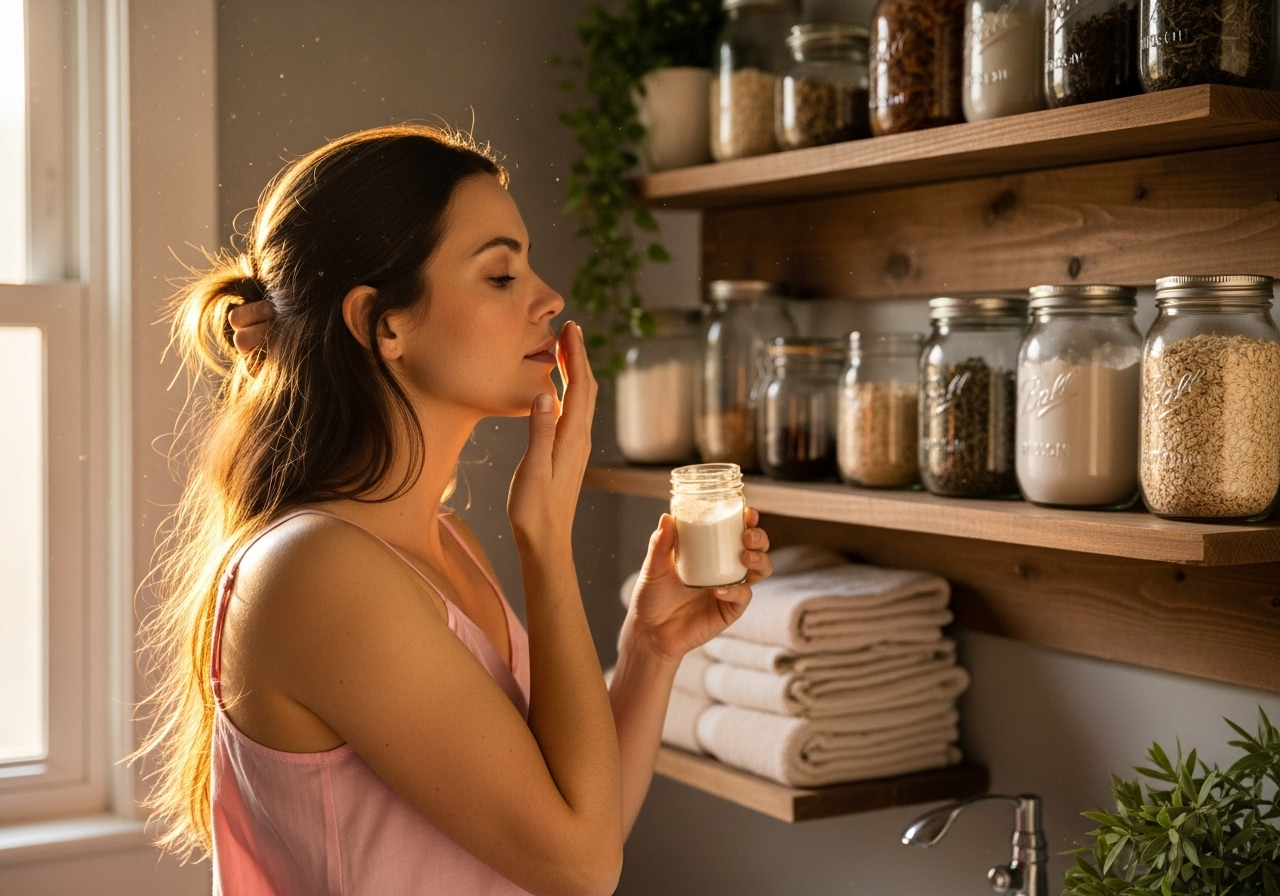Category: Self-Care | 8 min read
Sensual Self-Care: Reclaiming Pleasure as Wellness
Why prioritizing sensual pleasure—beyond just sexual—is essential for women's mental, physical, and emotional health.
By Admin
Published: 4/14/2025

I used to think self-care meant face masks and bubble baths—pleasant but somehow separate from real wellness. It wasn't until I learned about sensual self-care that I understood how disconnected I'd become from my own body and how this disconnection was affecting every aspect of my health.
Sensual self-care isn't about sexuality, though it includes it. It's about awakening all your senses, reconnecting with your body's wisdom, and allowing yourself to experience pleasure as a form of healing and nourishment. It's about remembering that we live in physical bodies designed to feel good, not just function.
The journey began when I realized I rarely touched myself except to wash or clothe my body. I moved through life almost entirely in my head, treating my body like a vehicle to carry my brain around rather than as an integrated part of who I am. This disconnection showed up as tension, numbness, and a general sense of being out of touch with my own needs and desires.
I started with simple practices that seemed almost revolutionary in their simplicity. Applying lotion became a meditation, really feeling the texture of my skin and the warmth of my hands. Eating slowly enough to actually taste food instead of wolfing down meals while multitasking. Taking baths not just to get clean, but to feel the pleasure of warm water against my skin.
The sense of touch became my gateway back to embodiment. I invested in fabrics that felt good against my skin—silk pajamas, cashmere scarves, cotton sheets with high thread counts. I learned that what we put on our bodies affects how we feel in our bodies, and that prioritizing comfort and pleasure isn't vanity—it's self-respect.
Massage became a regular practice, both giving and receiving. I learned basic techniques to massage my own feet, hands, and shoulders. The act of caring for my body with intentional touch created a sense of self-love that no amount of positive self-talk had achieved. Touch, I discovered, is a language the body understands better than words.
I began paying attention to beauty—not just visual aesthetics, but the kind of beauty that engages all the senses. Fresh flowers for their fragrance and visual pleasure. Music that made my body want to move. Textures that invited touching. Creating an environment that fed my senses became a priority rather than a luxury.
Movement transformed from exercise into embodied pleasure. Instead of punishing my body at the gym, I discovered forms of movement that felt good—dancing, swimming, walking in nature, yoga that focused on how poses felt rather than how they looked. My body began to crave movement instead of resisting it.
The practice extended to how I dressed and presented myself. I stopped wearing uncomfortable clothes just because they looked good and started choosing items that made me feel attractive and comfortable simultaneously. Clothing became an expression of self-love rather than self-torture.
Breathing became a sensual practice. Deep, conscious breathing that fills the belly and expands the ribcage is inherently pleasurable when you pay attention to it. I learned that shallow breathing keeps us disconnected from our bodies, while deep breathing brings us home to ourselves.
I discovered that women are often taught to ignore or suppress sensory experiences, especially pleasurable ones. We're encouraged to push through discomfort, to prioritize appearance over feeling, to be modest about enjoying physical sensations. Reclaiming sensual pleasure became an act of rebellion against these limiting messages.
The emotional benefits were profound. As I became more connected to my body, I became better at recognizing my emotional needs, setting boundaries, and communicating desires. The body holds wisdom that the mind often misses, and learning to listen to physical sensations improved my decision-making in all areas of life.
Sexual wellness improved dramatically as a side effect of general sensual awareness. When you're comfortable with your body, connected to your senses, and practiced at experiencing pleasure, sexual satisfaction naturally increases. But the benefits extended far beyond the bedroom into every interaction and experience.
I learned to create rituals around sensual self-care—morning routines that awaken the senses, evening practices that help transition from day to night, seasonal celebrations that honor the body's changing needs throughout the year. These rituals became anchors that kept me connected to my physical self.
The practice required setting boundaries around time and energy. Sensual self-care can't be rushed or squeezed into leftover moments. It requires presence, attention, and the radical belief that your pleasure and comfort matter enough to prioritize them.
Other women began noticing changes in how I moved through the world—more confident, more relaxed, more present. When I shared what I was learning, many confessed they'd never thought about their relationship with their own body or considered pleasure as a form of wellness.
Teaching my daughter about sensual self-care means modeling body appreciation, showing her that her comfort and pleasure matter, and helping her develop a healthy relationship with her physical self from the beginning. It means raising a woman who knows her body is meant to feel good, not just look good.
Sensual self-care isn't selfish or indulgent—it's essential maintenance for the vessel that carries us through life. When we're connected to our bodies, comfortable in our skin, and practiced at experiencing pleasure, we show up differently in every relationship and situation.
The most radical thing we can do in a culture that profits from women's disconnection from their bodies is to come home to ourselves—to honor our physical needs, celebrate our sensory experiences, and claim our right to feel good in our own skin.
This practice has taught me that wellness isn't just about preventing illness—it's about cultivating vitality, pleasure, and joy in the experience of being alive in a physical body.